«Throwing a stone in the pond» and demanding an end to the precarious employment of researchers and teachers at the University of Algarve was the main objective of a protest that took place today, Tuesday, December 5th, at the institution's Gambelas Campus, in Faro.
The demonstration, a joint initiative of the National Higher Education Union (SNESup) of the South Zone Teachers' Union (SPZS), affiliated with FENPROF, and the Association of Scientific Research Fellows (ABIC), brought together five dozen researchers and teachers from UAlg, as well as representatives of the entities promoting the protest.
The action culminated with the delivery of a manifesto to Paulo Águas, rector of UAlg, who received a delegation with representatives of the different entities.
According to José Contreiras, from SPZS, one of the objectives of the protest was «to speak to colleagues, to make our demands known, but also our concerns, which are already old and which not only belong to the University of Algarve, but are also a little national».
Still, the problems «are much more acute, here at the University of Algarve, because we have a very large burden in terms of precariousness, not only in terms of research, but also in terms of teaching».
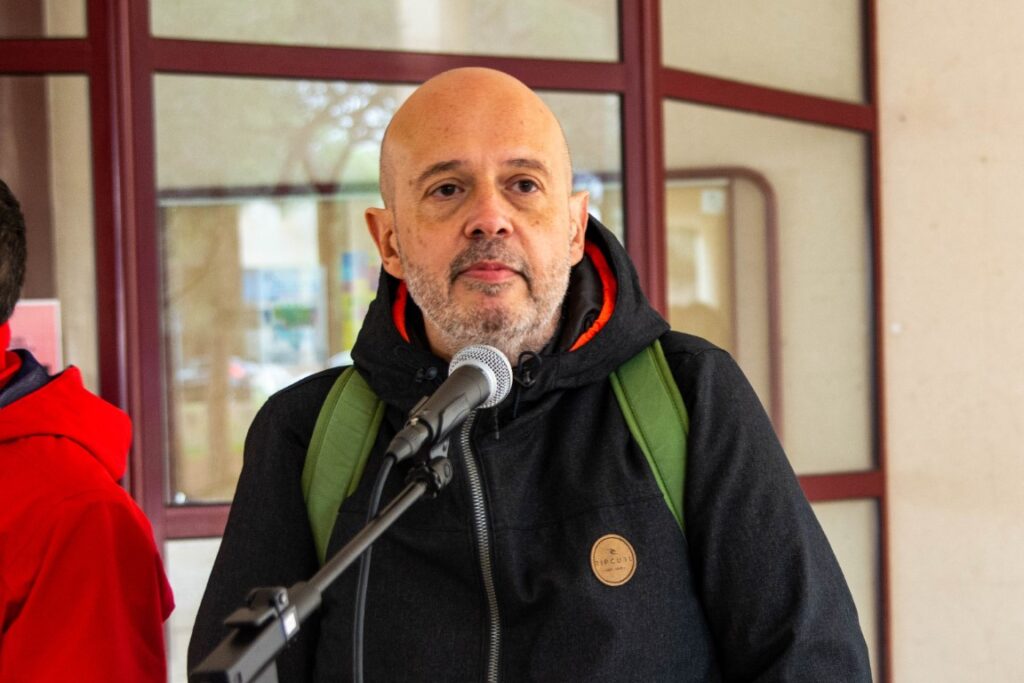
According to José Moreira, from SNESup, «one of the main problems is related to precariousness. Without exaggeration, 90% of researchers are precarious. There has been an evolution in recent years, with the transition from scholarship contracts to employment contracts, but these employment contracts are all precarious».
«Now there will finally be a small window of opportunity with the placement of around 1400 people, nationwide, on indefinite contracts», he adds.
The trade unionist, who has also been a teacher at the University of Algarve since 1999, refers to the FCT-Tenure program, a measure launched by the Government that aims to give permanent contracts to precarious researchers and teachers, but which, with the fall of the Government, is shrouded in uncertainty.
«Here at the University of Algarve, we have a large number of researchers who are about to lose their jobs, their employment contracts are about to end, we don't know what will happen. We will see how many will be integrated through this FCT-Tenure route, which will give some permanent contracts, both for teaching and research», said José Moreira.
At issue are researchers who signed 6-year contracts, under a law decree published in 2016, connection to institutions that ends “next year”.
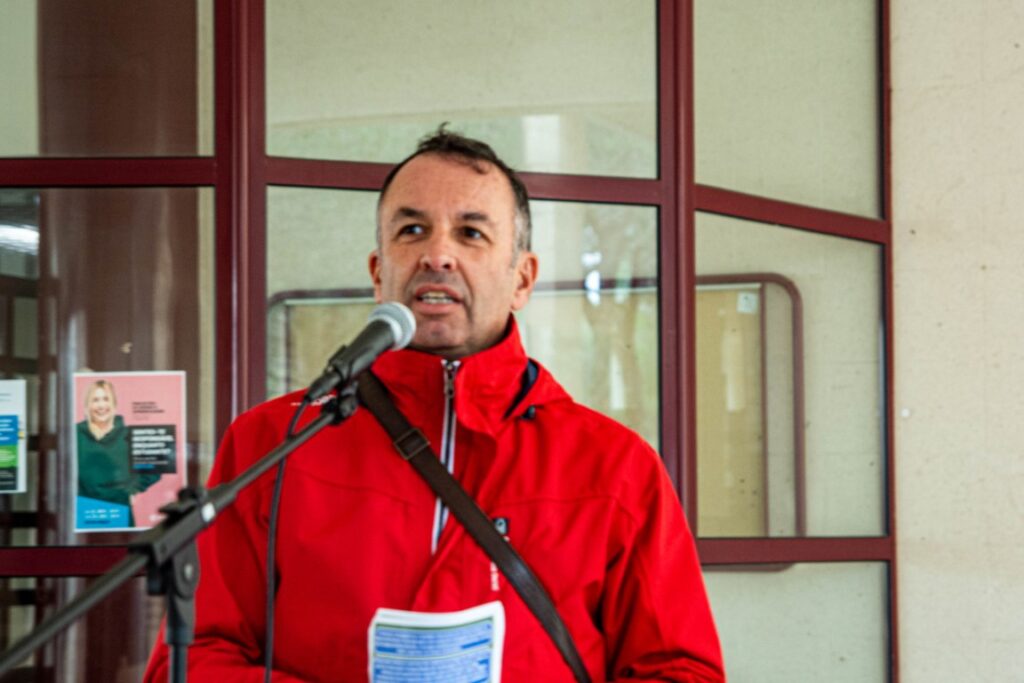
«There was a decree that allowed the majority of these highly qualified professionals to be given some stability, but at this moment there is once again no solution in sight», illustrates José Contreiras.
One person who is in this situation is Sofia Lisboa, vice-president of ABIC, an association that was created to combat precariousness in the scientific sector.
In 2019, with the Program for Regularization of Precarious Relationships in Public Administration (PREVPAP), many researchers saw their situation regularized, although the process did not go well at the University of Algarve, with the number of researchers seeing their situation stabilized being much lower than expected.
Despite some progress, the struggle that led to contracts for researchers was not considered over by ABIC, which continues to fight, «because there must be an appreciation of researchers as workers, like any other worker».
«They are researchers, they are laboratory technicians, they are science managers, they are, in short, people who are working, building the science of this country, which is a great source of bragging rights when we receive international awards, etc.», illustrates Sofia Lisboa.
«But then, in practice, these are people whose lives are based on the greatest precariousness, without knowing exactly how they are going to pay the bills the following month», he adds.
One of the things that ABIC defends is that scholarship holders who are doing a PhD, but also precarious postdocs, have access “to a 4-year contract, which is the duration of the PhD”.
This would not be a contract «to enter a scientific career now», but rather an employment relationship that will allow these researchers «to have, for example, the 13th and 14th month. We don't have 13th and 14th months, we don't have Social Security discounts as we should, we have something called Voluntary Social Security, which is, like, pseudo-social security».
With research grants, scientists do not have access to rights “such as maternity leave, sick leave, unemployment benefits. We are people who are working, who, at the end of the day, have no rights, we are not recognized as workers».
«This is a bigger fight, it is the fight against precariousness in this sector and to make it clear that science is not based on precariousness. Contrary to what the minister [of Science, Technology and Higher Education, Elvira Fortunato] said that there needs to be precariousness, because stability kills science, we say the opposite: precariousness is what kills science! A person will be able to contribute much more to scientific research and to answering their questions if they have stability in their life».
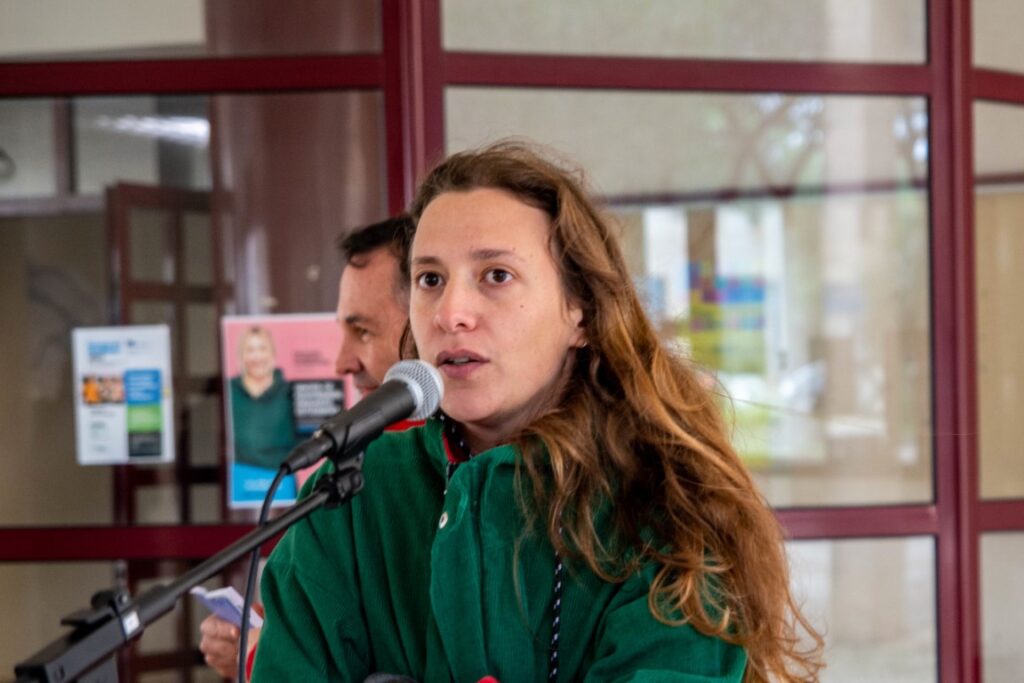
But it's not just researchers who face problems, teachers are also looking for better conditions.
«We have a lot of difficulties in career progression. We have the application of quotas in performance assessment, which is almost a unique case in Portugal, we are practically the only institution that applies quotas to teachers who have excellent results in reducing progression. Even if they are excellent, not all teachers manage to move up the career ladder», said José Contreiras, referring to UAlg.
This has implications for salary increases, but it is not the only factor that affects the remuneration of academics in the Algarve.
Another «important issue» is that of salaries, since university professors, but also researchers, «like other senior public administration personnel, have more than 30% accumulated losses in terms of purchasing power».
«Nothing against workers with lower salaries having more substantial increases, but once again we were increased below the expected inflation rate, so our increase in researchers and teachers is 3%, the predicted inflation is 4,9% at 4,7%», José Moreira.
Another concern shown by the protesters was with the financing of UAlg, «because we have a new budget, with a new formula for calculating financing, which no one knows what it is, and which is about to be applied next year. At the moment, we don't know», illustrated José Contreiras.
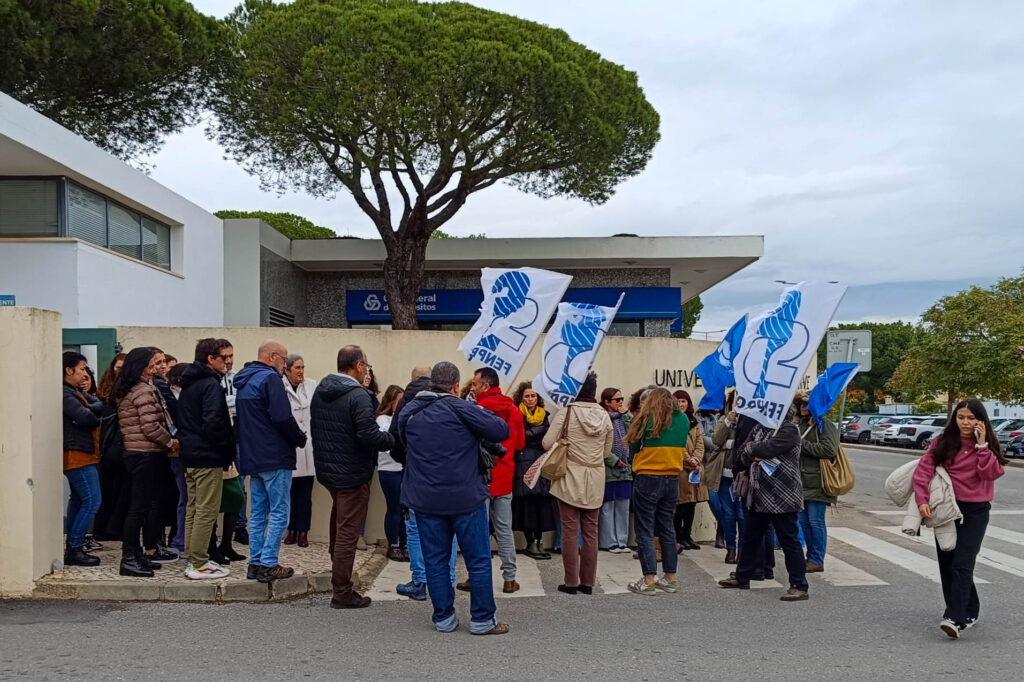
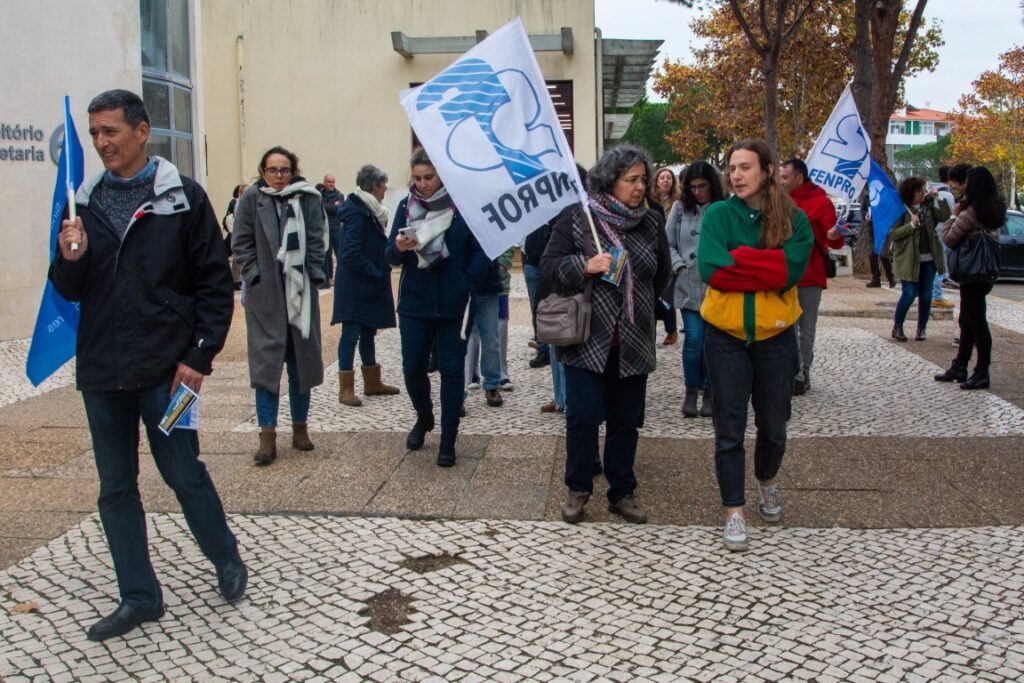
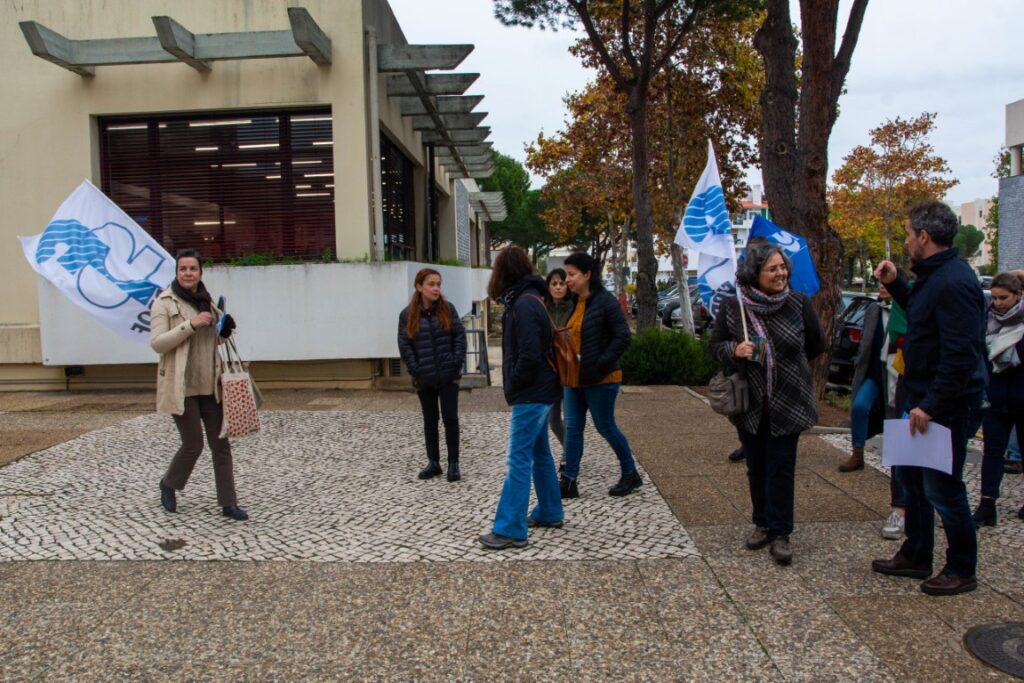

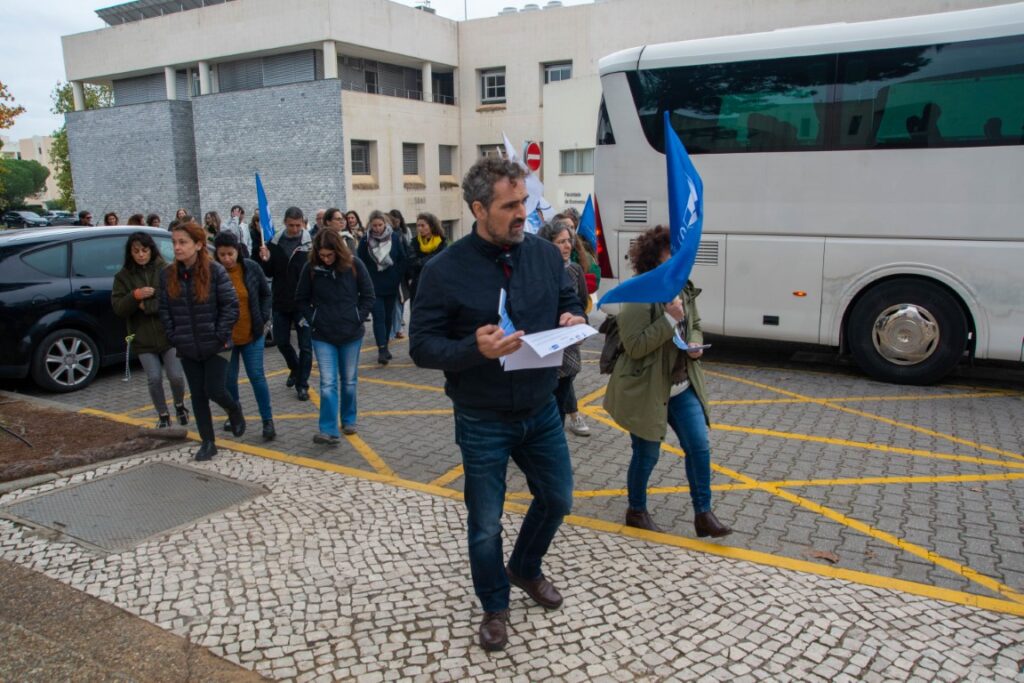
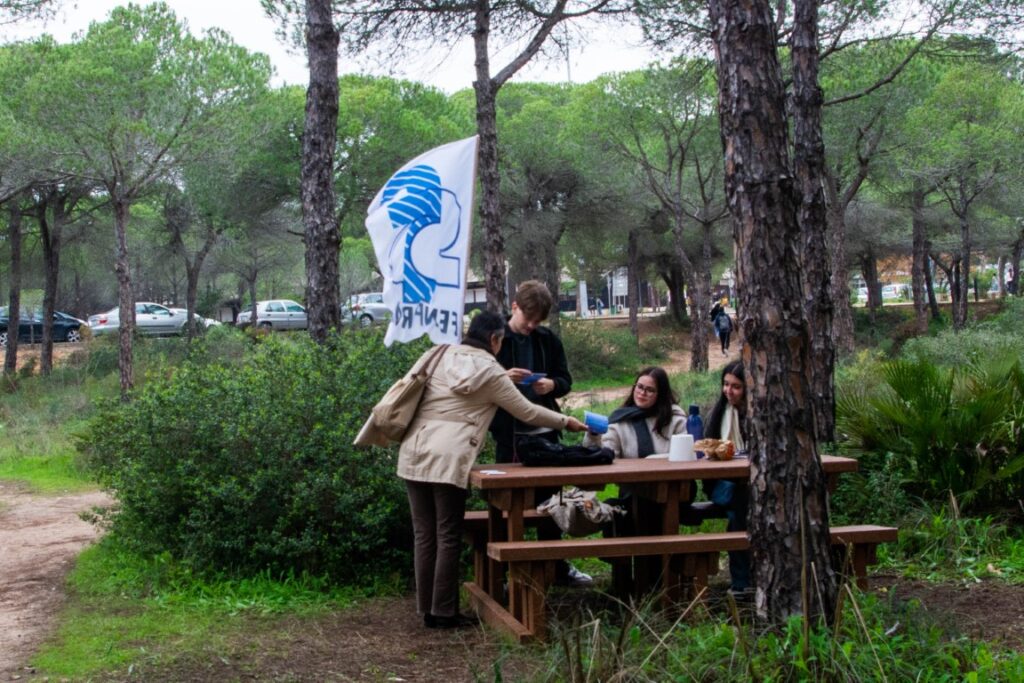
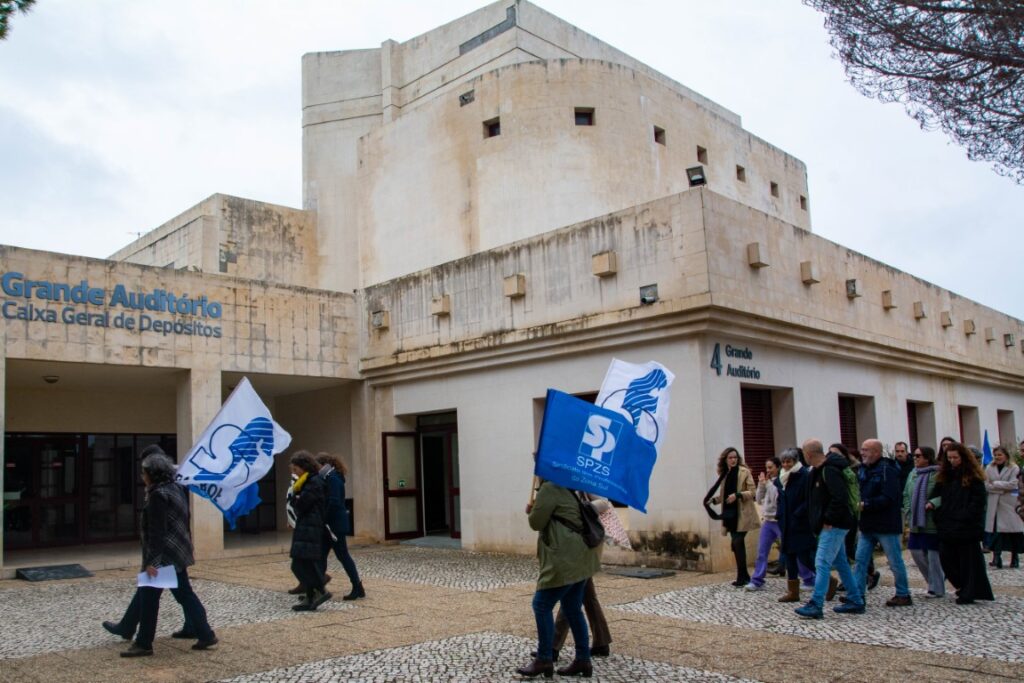
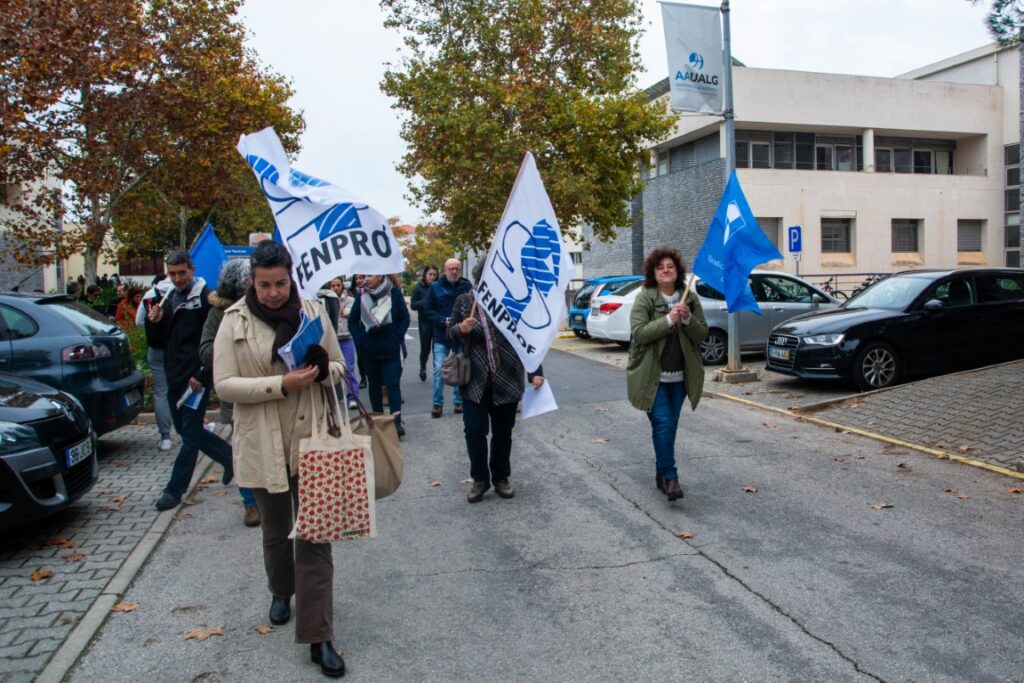
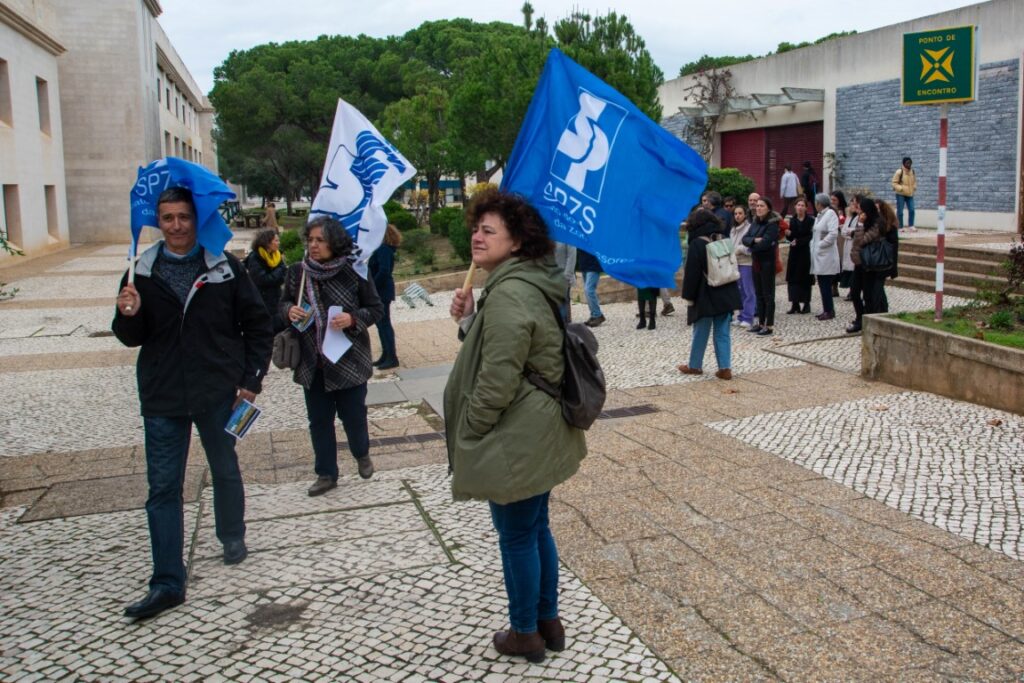
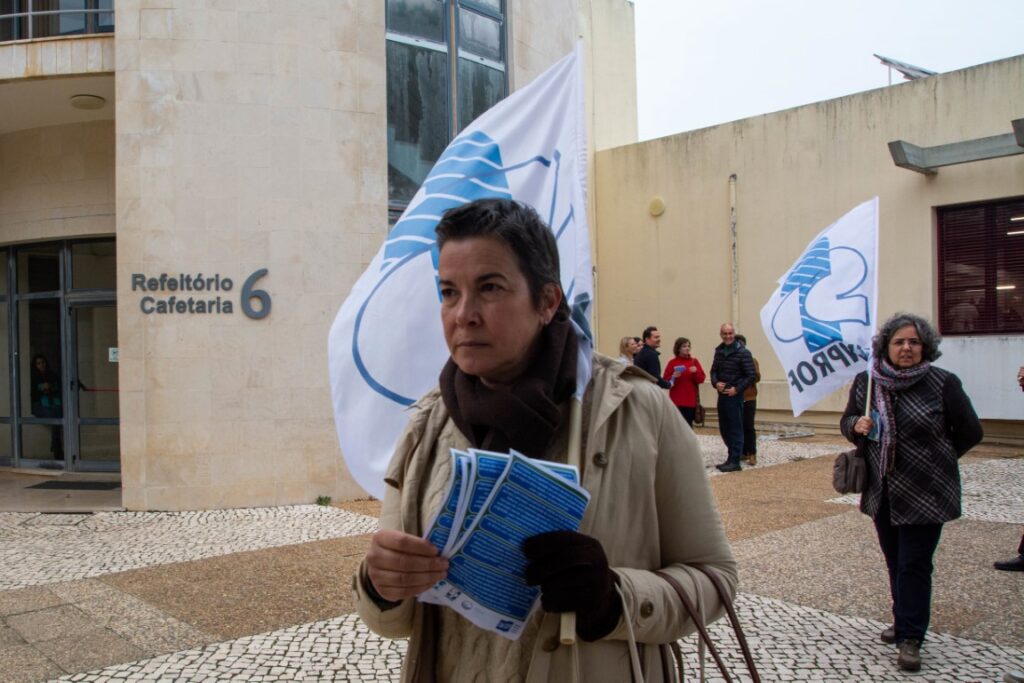
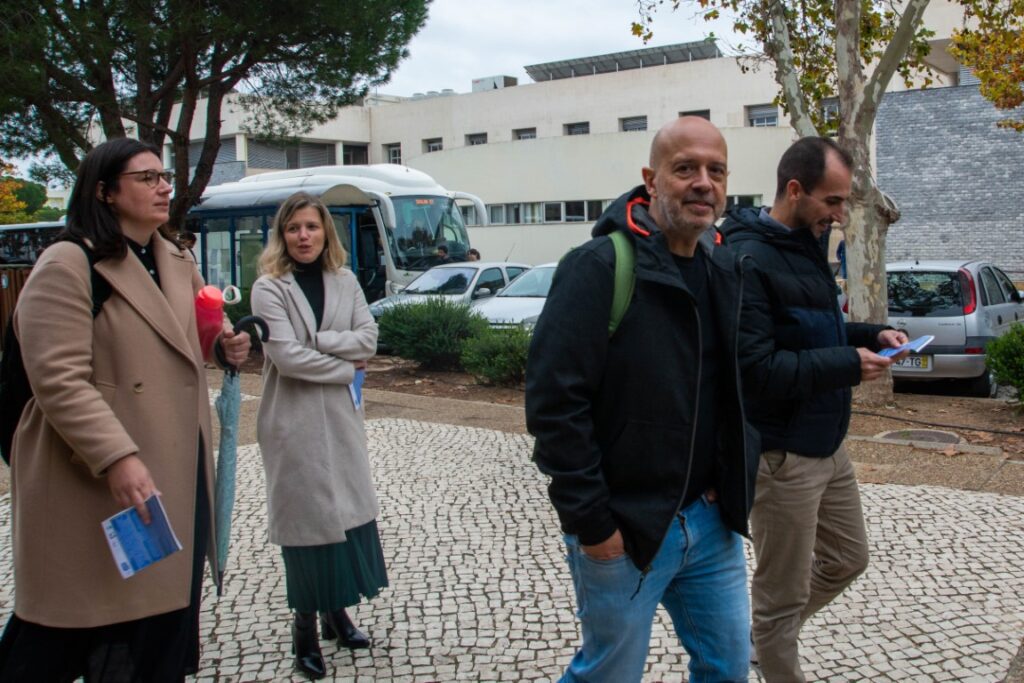
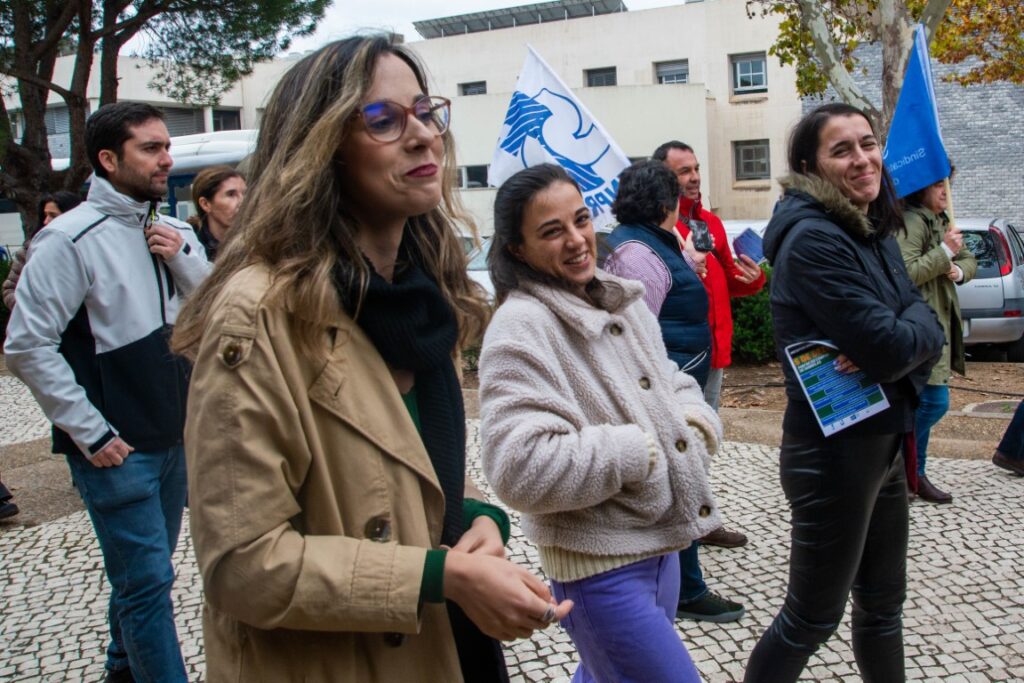
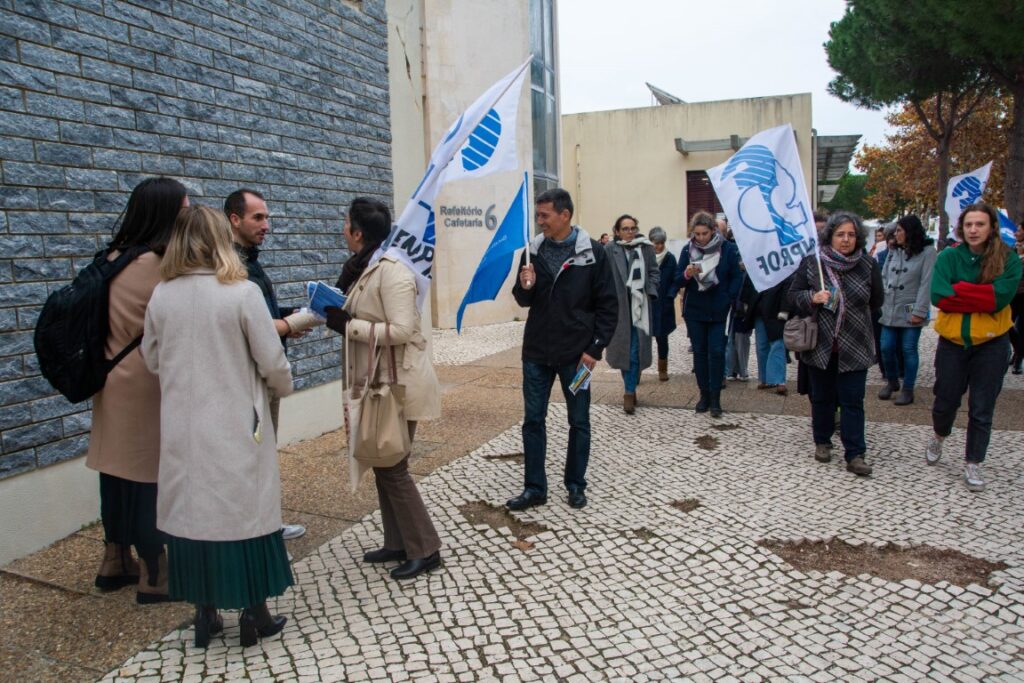
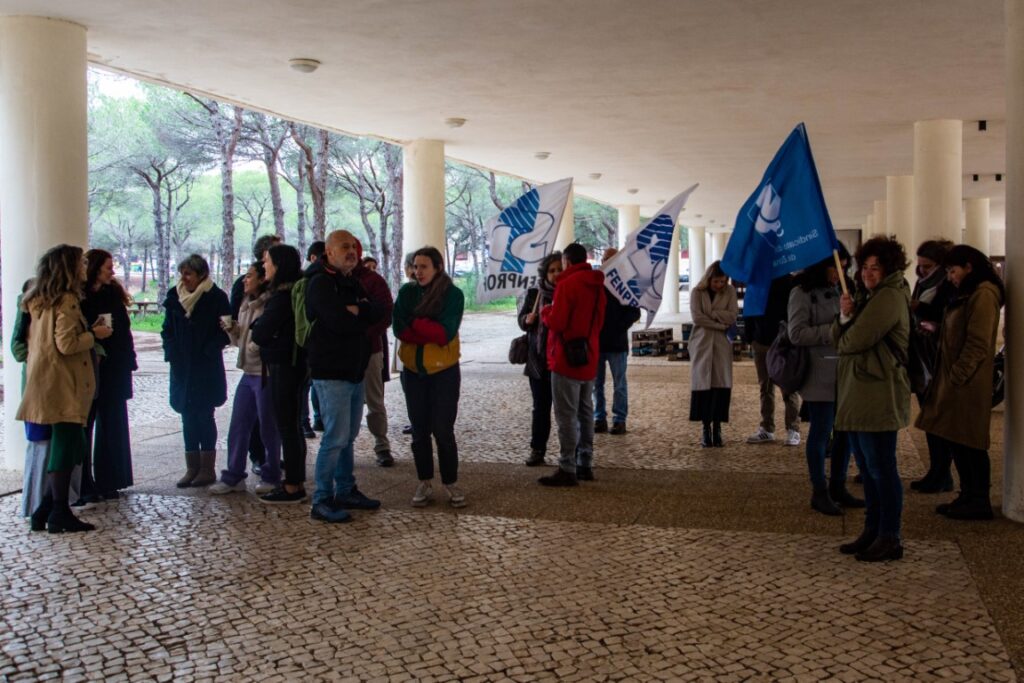

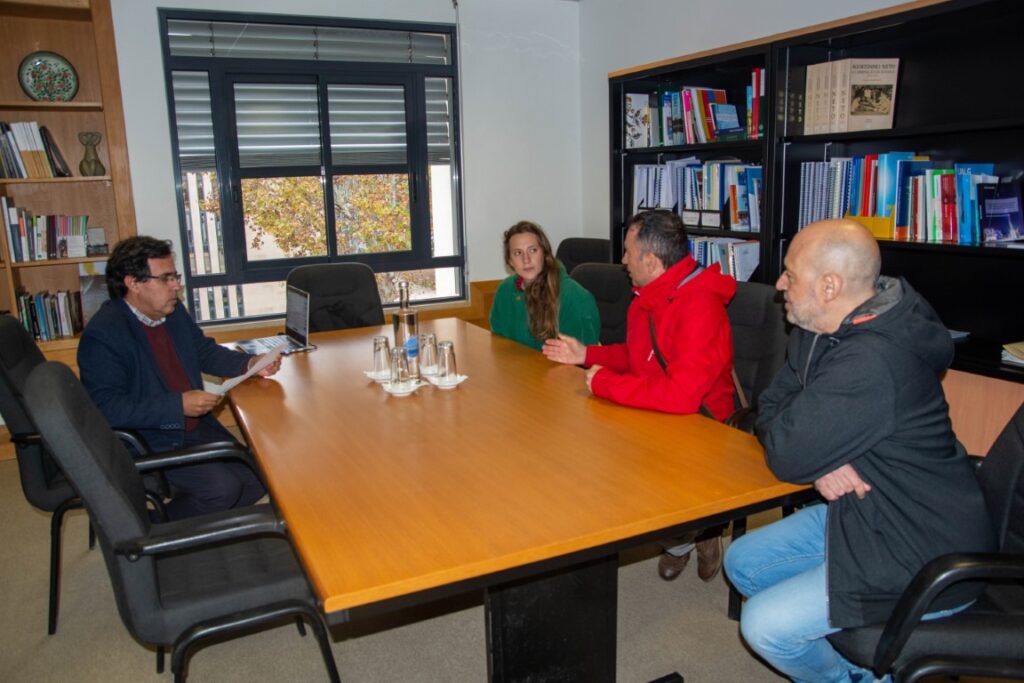


















Comments